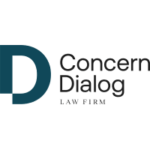-
What are the main methods of resolving disputes in your jurisdiction?
Commercial disputes in Iran may be resolved through litigation, or alternative dispute resolution methods among which mainly arbitration (institutional or ad hoc), mediation and reconciliation through the so-called Dispute Resolution Councils (DRC) are most commonly resorted.
Litigation
Commercial disputes heard by Iranian courts are mainly referred to the Tehran Specialized Courthouse for Commercial Disputes (Commercial Court).
In line with Article 566 of the Criminal Procedure Code and its Note which oblige all judicial authorities whether civil or criminal, to allocate specialized branches of the judicial authorities for specialized trials and pursuant to Article 29 of the Law on Continuous Optimization of the Business Environment 2012 the Commercial Court was established on 16 November 2020. Similar to civil courts, Commercial Court’s proceeding is composed of first instance and appeal courts. According to Article 6 of the Guideline for the Establishment of the Commercial Court, the Commercial Court has jurisdiction over the following:
- Claims arising from the sale of goods in the context of traditional or electronic commerce, provided that both parties are commercial companies;
- Claims related to the formation, merger, wind-up, or bankruptcy of commercial companies;
- All matters and claims relating to arbitration, such as the appointment of arbitrators, annulment, or enforcement of arbitral awards, provided that the underlying dispute falls within the scope of items 1 or 2 above.
Commercial disputes which do not fall within the scope of any of these three items, such as cases involving an individual as a disputing party, are still heard by the general civil courts.
Alternative Dispute Resolution
Commercial disputes may be resolved through arbitration, which is either ad hoc or institutional. Tehran Regional Arbitration Centre (TRAC), affiliated with the Asian-African Legal Consultative Organization, and the Arbitration Centre of Iran Chamber of Commerce, Industries, and Mines (ACIC) are two principal arbitration institutions commonly chosen in commercial disputes in Iran.
Given Iran’s accession to the United Nations Convention on Recognition and Enforcement of Foreign Arbitral Awards 1958, the parties may opt for arbitration more confidently.
Other forms of commercial dispute resolution such as mediation or reconciliation may also be used by the parties; unlike arbitration, however, these methods are not institutionally structured or statutorily regulated. However, in accordance with Article 15 of the Law of Dispute Resolution Councils 2023, civil courts upon referring of any kind of civil dispute may advise disputing parties to try to settle their disputes through alternative methods before the DRC, although the parties may decide to continue litigation nonetheless.
However, parties to a dispute can settle at any stage during the proceeding, or request from the court to provide them with time extension to negotiate a settlement. If successful, a binding settlement agreement may be entered into before a public notary office or the court.
-
What are the main procedural rules governing litigation in your jurisdiction?
Commercial proceedings are primarily governed by the Civil Procedure Code 2000 (CPC). In addition, the Law on Formation of Public and Revolutionary Courts 1994 (with the latest amendments as of 2014) contains provisions dealing with procedures in civil courts hearing commercial cases.
Under Article 29 of the Law on Continuous Optimization of the Business Environment 2012, the Judiciary was also tasked with drafting a specific Code of Commercial Procedure. However, since such a code has not yet been enacted, proceedings before the Commercial Court are currently conducted in accordance with the CPC.
The procedural system for commercial litigation in Iran is adversarial. The proceeding is commenced by a plaintiff via filing a written statement of claim with the court, along with any supporting documents. During the proceeding, service rules are of significant importance; these are mentioned in response to question 8.
-
What is the structure and organisation of local courts dealing with claims in your jurisdiction? What is the final court of appeal?
Iran’s judiciary system in terms of commercial dispute comprises three essential tiers of proceedings through Trial Courts, Appeal Courts, and the Supreme Court as elaborated below.
a) Trial Courts (first instance)
Trial civil courts include general civil courts, district courts, family courts, peace courts/DRC, and revolutionary courts. As the general civil courts (in form of Commercial Court as explained above) and in some instances DRC or peace courts would get involved in a commercial dispute, we confine the response merely to these kinds of courts among the trial courts to be aligned with the scope of the Guide.
- General civil courts have general jurisdiction over civil matters, and any case that does not fall under the jurisdiction of other mentioned trial courts will be under the authority of a general civil court. These courts are presided over by a single judge, either the court’s presiding judge or an alternate judge. The Commercial Court, dealt with earlier in Q1 above, are in fact specialized branches of the general civil courts.
- Peace courts are established in counties and are officially convened with the presence of a presiding judge or alternate judge. Peace courts among other things have jurisdiction over financial claims up to IRR 1,000,000,000 (circa USD 1,000 at the current open market rate). Peace courts are in fact a relatively recent addition to Iran’s judiciary, replacing the DRC in 2023.
- DRC their jurisdiction of which is limited primarily to reconciliation/mediation efforts for the civil or criminal cases at a pre-trial stage in accordance with Article 15 of the Law on Dispute Resolution Council as stated above under Q1.
b) Court of Appeal
To review the decisions of trial courts, appeal courts are established in the capital of each province. Each court is composed of a presiding judge and two associate judges. A quorum is achieved with the presence of two members, and the decision of the majority, issued by either the presiding judge or an associate, is final and enforceable following substantive review.
c) Supreme Court
The Supreme Court is the highest judicial authority in Iran. As per principle 161 of the Constitution, it is responsible for ensuring the proper application of laws in the courts, unifying judicial procedures, and fulfilling other duties as prescribed by law. A Supreme Court branch is composed of three judges and the hearings are held with the majority of judges present.
If the Supreme Court finds that a ruling submitted for review (final appeal) is inconsistent with Islamic principles or statutory law, it annuls the decision and refers the case either to the issuing court (trial court or court of appeal), competent court, or a different chamber within the same jurisdiction for reconsideration as the case may be.
The Supreme Court is composed of: Ordinary chambers, Special chambers, the General Assembly for Unification of Procedure and Judgements, the General Assembly of Civil and Criminal Chambers.
- Ordinary Chambers
These chambers (civil and criminal) handle most of the Supreme Court’s workload, including hearing final appeals on eligible civil and criminal cases. They also resolve jurisdictional conflicts between courts or determine the competent forum when needed.
- Special Chambers
If the Head of the Judiciary determines that a final ruling issued by a judicial body is manifestly contrary to Islamic law, he may authorize a retrial and refer the case to a special chamber of the Supreme Court. These chambers annul the prior ruling, re-examine both substantive and procedural aspects of the case, and issue a final decision.
- General Assembly for Unification of Procedure and Judgments
If different chambers of the Supreme Court or lower courts issue conflicting rulings in similar cases due to divergent interpretations of the law, the Head of the Supreme Court or the Prosecutor General is required to request the opinion of the General Assembly for the sake of procedural uniformity. Judges, prosecutors, or attorneys may also request an opinion through the Head of the Supreme Court or the Prosecutor General. The General Assembly is chaired by the Head of the Supreme Court or his deputy, with the presence of the Prosecutor General or his representative, and at least three-quarters of the chamber heads, senior judges, and associate judges. Their decision is binding for all courts and other authorities in similar future cases but has no retroactive effect on finalized judgments.
- General Assembly of Civil and Criminal Chambers
If, after the Supreme Court overturns a lower court decision and remands it to a different chamber of the same court, that chamber insists on its original reasoning and issues a new ruling (known as a “persistent judgment”), and if this ruling is again appealed to the Supreme Court, the matter is referred to the General Assembly of Civil or Criminal Chambers (depending on the nature of the case). If the General Assembly upholds the Supreme Court’s reasoning, the ruling is annulled and the case is referred to a new chamber of the same level, which must issue a judgment in accordance with the Assembly’s reasoning. That judgment will be final and not subject to extraordinary appeal.
d) Finality and Appealability of Judgments
Judgments of general courts in civil matters are final unless explicitly subject to appeal or extraordinary appeal under the law.
Although in principle the general courts’ judgments are final, in practice, a large portion of their decisions can be appealed. In some specific cases enumerated by law, judgments that are not appealed within the statutory period (i.e. 20 days for residents of Iran and 2 months for those abroad) may be subject to extraordinary appeal before the Supreme Court. Also, in certain exceptional matters -such as family law, personal status, and religious endowments- appeals from appellate court decisions can be further reviewed by the Supreme Court.
While appellate courts conduct a full substantive review, final appeals before the Supreme Court are primarily limited to procedural and legal conformity with Islamic and statutory principles.
Financial claims that have been appealed and adjudicated by court of appeal are final and cannot be subject to final appeal before the Supreme Court. Therefore, the Supreme Court is the highest authority for reviewing civil judgments, but in most commercial cases, appeals are filed with the court of appeal, and the decision of the court of appeal is final and not subject to supreme court review.
-
How long does it typically take from commencing proceedings to get to trial in your jurisdiction?
It typically takes 1-6 months from commencing commercial proceedings to get to trial in the first hearing session, although this time may vary significantly depending on the nature of the dispute and also the defendant’s domicile being in Iran or outside Iran which determines the service timeline.
-
Are hearings held in public and are documents filed at court available to the public in your jurisdiction? Are there any exceptions?
According to principle 165 of the Constitution, trials are to be held publicly, and the presence of individuals is not prohibited unless, in the court’s view, a public hearing would be contrary to good morals or public order, or in private disputes where the parties request a non-public trial. Nevertheless, in practice, trials, especially commercial disputes, are often held behind closed doors and not open to public or press, while individuals other than the principals involved, their lawyers, and those connected to the case such as witnesses and experts are not permitted to attend the hearings.
Court documents such as statements of claim and defence, petitions, subpoenas, and their supplementary or supporting documents are not available to the public. Generally, court judgements in commercial cases are not publicly available either. However, some rulings are published publicly, after the names of the parties are removed, on a platform designated by the Judiciary for this purpose (https://ara.jri.ac.ir).
-
What, if any, are the relevant limitation periods in your jurisdiction?
In Iran’s legal system, there is no general statute of limitation for commercial claims. However, various laws stipulate specific limitations for certain claims on an exceptional basis. If a claim is filed after such limitations, the court will issue an order to dismiss the case in accordance with Paragraph 11 of Article 84 of the CPC. The main limitations provided under the Iranian laws include:
- The limitation for claims by third parties against shareholders or their heirs regarding company transactions (in cases where the law holds the shareholders liable) is five years according to Article 219 of the Commercial Code (CC).
- Claims related to promissory notes, bills of exchange, and cheques issued by merchants or for commercial purposes will not be admissible after five years from the date of protest or the last legal action, unless the debt has been formally acknowledged within that period. In such cases, the limitation restarts from the date of acknowledgment. If no protest is filed, the limitation period starts from the date the protest period expires as per Article 318 of CC.
- According to Article 393 of CC, the limitation for damage claims against a carrier is one year. This period starts, in the case of loss or disappearance of goods or delay in delivery, from the date the delivery was supposed to occur; in the case of maritime damages, the starting point is the day on which the goods were delivered to the consignee. However, the claims against the carrier in the international carriage by air are subject to a separate limitation as explained below.
- Iran is a party to the Convention for the Unification of Certain Rules Relating to International Carriage by Air 1929 (the Warsaw Convention) and the Amending Protocol 1955 (the Hague Protocol) and as per Article 9 of the Civil Code, the relevant instruments are deemed as the domestic law. Per Article 26 of the Warsaw Convention as amended by Article 15 of the Hague Protocol, “in the case of damage, the person entitled to delivery must complain to the carrier forthwith after the discovery of the damage, and, at the latest, within seven days from the date of receipt in the case of baggage and fourteen days from the date of receipt in the case of cargo. In the case of delay the complaint must be made at the latest within twenty-one days from the date on which the baggage or cargo have been placed at his disposal.” In addition, the relevant action is subject to the limitation of 2 years reckoned from the date of arrival at the destination, or from the date on which the aircraft ought to have arrived, or from the date on which the carriage stopped.
It is noteworthy that the Warsaw Convention is generally considered as a lex specialis that specifically governs international air carriage claims. Therefore, the claims for damages against carriers outside the scope of the Warsaw Convention (i.e. domestic carriers or non-air carriers), are subject to the statute of limitations of one year as set out by Article 393 of CC.
- Pursuant to the the Law on the Obligation to Officially Register Transactions of Immovable Property 2024 (the Register Law), property holders whose ownership has not been formally registered in their name, as well as tenants who have leased a property for more than two years, are required to submit their claims, along with supporting documents, through the official registry platform for informal documents within two years of the platform’s launch. They must also obtain an official title deed or initiate legal proceedings to do so within two years from the date of claim registration. Otherwise, their claims will be time-barred and not admissible in court.
Furthermore, if the registration of the termination of registered transactions involving immovable property requires a judgment by a judicial authority or an arbitral award, a legal notice must be served within 15 days of exercising the right of termination, and the action for confirmation of the termination must be filed within 15 days thereafter; otherwise, it shall not be admissible.
-
What, if any, are the pre-action conduct requirements in your jurisdiction and what, if any, are the consequences of non-compliance?
Generally, there is no pre-action requirement under the Iranian legal system. However, certain claims require preliminary measures to be taken before initiating the proceedings; otherwise, the case will face dismissal. For instance, if one party to a contract intends to terminate it, they must first notify the other party of the termination through appropriate means, and only then may they bring a claim for confirmation of the termination. Similarly, if a protest (formal demand) is not made within the statutory deadline for commercial instruments such as cheques or bills of exchange, no claim may be brought against the endorser.
In addition, parties’ valid agreement on a multi-stage dispute resolution process -where, for instance, measures such as good faith negotiation to reconcile or mediation must be taken prior to court proceedings- will be binding, and a failure to comply will render the dispute inadmissible before the court.
-
How are proceedings commenced in your jurisdiction? Is service necessary and, if so, is this done by the court (or its agent) or by the parties?
Commercial proceedings commence upon filing a statement of claim with the court along with any supporting documents through the Judiciary’s portal at www.adliran.ir, and payment of court fees or obtaining a payment exemption due to insolvency therein.
After filing a complete statement of claim and payment of court fees by the plaintiff (if the latter is applicable), the court clerk shall present the case file to the judge. If the judge deems the file to be complete, it will be returned to the clerk with an order to schedule a hearing. The court clerk shall then set the hearing date and issue an order for service of the statement of claim along with the enclosures to the defendant(s).
If the defendant is an Iranian national registered in the Judiciary’s portal, the court clerk sends the documents electronically via the portal. Electronically sent documents are deemed to have been served once delivered in the recipient’s account.
If the defendant is an Iranian national not registered in the judiciary’s portal, or if it is a foreign national domiciled in Iran, the documents will be physically served at the defendant’s address provided by the plaintiff, or otherwise specified by the defendant.
If the defendant is domiciled in a foreign jurisdiction, the court clerk must serve the documents through the Iranian consulate in (or responsible for) such jurisdiction, and the hearing session must not be scheduled for a date earlier than two months from the service date.
If the plaintiff does not know the address of a defendant, the notice of the statement of claim must be published in a widely circulated newspaper; and the hearing must not be scheduled for a date earlier than one month from the publication date. However, some courts believe that this is permitted only in respect of Iranian nationals, whereas in the case of foreign nationals, providing an address and serving documents at the declared address is deemed necessary.
There is no preferred method of serving documents in Iran in relation to the international commercial litigations.
-
How does the court determine whether it has jurisdiction over a claim in your jurisdiction?
As to the international commercial disputes, Article 971 of the Civil Code reflects a general principle in private international law (conflict of laws), affirming that the procedural law (lex fori) of the place where the lawsuit is filed governs the proceedings. Furthermore, it establishes a general jurisdiction for the Iranian courts over the matter(s) involving a foreign court jurisdiction.
In relation to the domestic commercial disputes, the CPC sets out the rules governing the matter of jurisdiction as follows.
a) Territorial Jurisdiction
In principle, courts located in the defendant’s domicile have jurisdiction in such disputes. If a defendant is not domiciled in Iran, courts of its temporary place of residence in Iran will have jurisdiction. If no such place of temporary residence can be identified, courts of the place where the defendant has an immovable property will have jurisdiction. Finally, if the defendant owns no immovable property in Iran, the plaintiff may bring the action in the courts located in its own domicile.
Notwithstanding the foregoing, if a claim is in relation to an immovable property, courts of the place where the property is located will have jurisdiction.
Where a dispute relates to a contract, the plaintiff may also file the claim with the court of the place of conclusion of the contract, or the place of performance under the contract.
Commercial claims that fall within the jurisdiction of the Commercial Court are heard by the first-instance (trial) Commercial Court in Tehran, regardless of the defendant’s place of residence, the place where the contract was concluded, or the place where it is to be performed. The rules on local jurisdiction, as described above, must still be observed in respect of other types of commercial claims, such as those where one of the parties is an individual (see the response to Q 1).
Finally, if parties to a contract agree to refer their disputes to arbitration in commercial cases (except for bankruptcy, over which courts have exclusive jurisdiction), courts must decline jurisdiction.
b) Subject-matter Jurisdiction
Public civil courts have general jurisdiction to hear commercial disputes other than those falling within the scope of the Commercial Court. In practice, however, certain branches of Tehran civil courts are considered to have more experience in hearing specific types of disputes such as those relating to intellectual property, banking or aviation.
In addition, there are a number of bodies established by law to hear specific subject-matter disputes. For instance, disputes arising in relation to capital markets among issuers, investment advisors, investors, brokers and the regulator must be resolved by the arbitration tribunal of the Securities and Exchange Organization.
-
How does the court determine which law governs the claims in your jurisdiction?
Under the Civil Code as stated above, laws of the court’s jurisdiction will govern procedural matters.
With respect to substantive matters under a contract, laws of the place of conclusion of the contract (Lex loci contractus) apply except where both parties to the contract are foreign nationals and have explicitly or implicitly chosen a foreign law as prescribed by Article 968 of the Civil Code.
Notwithstanding the foregoing, Iranian courts do not recognise a choice of foreign governing law if application of such law would, in the court’s opinion, be contrary to the public order or good morals.
-
In what circumstances, if any, can claims be disposed of without a full trial in your jurisdiction?
Commercial disputes may not be adjudicated without a full trial (i.e. in a form of summary proceeding) unless there are procedural grounds to dismiss.
A defendant may, during the first hearing session, raise procedural objections (for instance lack of jurisdiction, res judicata, or parallel proceedings). If raised, court must first decide on such procedural objections before considering the merits of the case.
A plaintiff may withdraw its claim prior to closure of hearing, upon which the court will conclude the proceeding.
Furthermore, in certain cases such as applications for the recognition and enforcement of arbitral awards or foreign court judgments, the court may render its decision without holding a hearing. A similar approach may apply to specific disputes involving newly issued cheques (commonly referred to as Sayadi cheques), where an enforcement writ can be issued without a full trial, provided that the necessary legal requirements are satisfied.
-
What, if any, are the main types of interim remedies available in your jurisdiction?
Under CPC, in certain circumstances, a plaintiff may request interim remedies from the court prior to, or during the proceedings. Examples include temporary seizure of assets or properties through a “writ of attachment”, or interim injunctions prohibiting certain acts or omissions by a defendant through an “injunction order”.
To secure such interim remedies, a plaintiff must prima facie prove the grounds for its claim and must further show an element of urgency that warrants the requested remedy (for instance where a debt recovery may be jeopardised in the absence of an injunction prohibiting a defendant from transferring its assets to third parties). In addition, except for some certain instances, a security is required to be deposited with the court fund to recover the potential loss that the other party might incur if the plaintiff does not receive a favourable judgement at the end of the proceeding.
Interim remedies in relation to a dispute are considered “subordinate” to the judgment over the dispute itself in the sense that the petition for the original relief sought shall be lodged within a certain grace following the order for interim remedy is issued. If the need for an interim remedy arises simultaneously with the main claim, the petition for the remedy may be included within the statement of claim.
Furthermore, an Iranian defendant sued by a foreign plaintiff may request that the plaintiff deposits security for the costs (including attorney fees based on legal tariff) which the plaintiff may be ordered to pay to the defendant should the plaintiff lose the case. The determination of the security deposit amount is at the court’s discretion and typically depends on the nature of the claims and the strength of the plaintiff’s supporting evidence.
-
After a claim has been commenced, what written documents must (or can) the parties submit in your jurisdiction? What is the usual timetable?
Commercial proceedings commence with the plaintiff filing a statement of claim, which must include names and addresses of the parties (and their attorneys); head(s) of claim; ground(s) for the claim(s); list of evidence and supporting documents (if any); and a brief statement of the claim(s). The plaintiff must submit the originals of the supporting documents referred to in the statement of claim during the first hearing session, when the defendant may also submit its statement of defence which must be accompanied by originals of its supporting documents, if any. Although the law allows for verbal presentation of statement of claim and statement of defence before the court, as a matter of practice both statements should be filed with the Commercial Court prior to the hearing session.
During the first hearing, statement of claim may, subject to certain conditions, be amended by the plaintiff, in which case the court may allow the defendant to prepare an amended or supplemented statement of defence after the first hearing or alternatively reflect the amendments in the minute of the hearing. In such a case, the defendant may also request additional time to prepare its statement of defence.
If the defendant submits documents or provides evidence which cannot be refuted by the plaintiff without making new submissions, the plaintiff may request the court to postpone the trial so that it may collect evidence and make such submission within a time grace set by the court.
-
What, if any, are the rules for disclosure of documents in your jurisdiction? Are there any exceptions (e.g. on grounds of privilege, confidentiality or public interest)?
Pursuant to article 197 of CPC, if a person claims a right or a debt against another, they must provide evidence. However, in certain circumstances, the law allows a request to be made to the court to order disclosure of documents.
Generally, under provisions of CPC either party to commercial proceedings may request the court to order the opposing party or a third party to disclose documents, subject to certain conditions as follows:
- If a party presents a document that refers to another document relevant to the proceedings, the opposing party has the right to demand the court to order its disclosure (Article 208).
- If a specific document supporting the claim or statement of a party is in possession of the counterparty, it must be disclosed upon request. If the counterparty acknowledges the existence of the document but refuses to present it, the court may consider such refusal as a judicial presumption supporting the requesting party’s claim (Article 209).
- If a party relies on the commercial books of the opposing party that is a merchant, those records must be produced in court. If the production of the books before the court is impractical, the court may appoint an expert to examine the records in the presence of both parties and extract the relevant information. If the merchant refuses to produce the records and fails to prove their loss or inaccessibility, the court may consider such refusal as a judicial presumption in favor of the requesting party (Article 210).
- The government organs, banks, municipalities, and institutions established and operated with public funds are required to submit documents and information relevant to a pending lawsuit upon the court’s order, whether or not they are a party to the dispute (Article 212).
- If any party to the dispute intends to rely on criminal case files held by judicial authorities, the court may request their submission, and the relevant authority must comply. If the relied upon file relates to a civil case, the court shall issue an official request allowing the party to obtain a certified copy of the relevant parts within a specified time-limit (Articles 214 and 215)
- Under Article 21 of the Notaries and Registrars Act 1975, as an additional original copy of notarized documents are kept at notary offices, if a party challenges the authenticity of a document or disputes the accuracy of an original copy, the notary office must, upon the request of the competent judicial authority, temporarily seal and submit the original document to the court.
However, there are also exceptions to the above rules:
- If the disclosure of a document is not feasible, or full or partial disclosure of a document is contrary to the public order, good morals, public interest, and reputation of the parties involved in the trial or third parties, the judge or the chief clerk will, in presence of the parties, extract the parts relevant to the trial (Article 211).
- The submission of government classified documents would require the judiciary chief’s approval (Note 1 to Article 212).
-
How is witness evidence dealt with in your jurisdiction (and in particular, do witnesses give oral and/or written evidence and what, if any, are the rules on cross-examination)? Are depositions permitted?
In most commercial disputes, the parties support their claims by submitting written evidence, although witness evidence may also be presented. Under CPC, specific rules govern the use of witness evidence. For instance, testimony by a witness who has an interest in the dispute is not admissible, and testimony of witnesses under the age of 15 is considered “presumptive” evidence, which can be prevailed over by stronger class of evidence considered “persuasive”.
In general, and in the absence of prevailing counterevidence, commercial claims with financial implications can be proved through the testimonies of two male witnesses, or two female witnesses accompanied by one male witness. However, in practice, Commercial Court in Iran have adopted a more cautious and evidence-based approach. Courts typically undertake further investigation and rely not solely on witness testimony, but also on supporting documentary evidence in forming their conclusions and issuing judgments.
Witnesses are invited to a hearing session where verbal or written witness statement will be obtained from them. Typically, the judge questions the witness, although each party may challenge the credibility or qualification of its opponent’s witness, in which case the court must decide on those matters too.
In principle, the witness testimony is only reliable as evidence if given before the presiding judge(s), as the result of which the deposition is not available in commercial disputes. However, depositions are mostly available in insolvency proceedings merely as a “presumption” rather than evidence.
CPC does not contain specific provisions governing cross-examination. The conduct and allowance of cross-examination are left to the discretion of the court and may be permitted during the hearing at the judge’s initiative.
-
Is expert evidence permitted in your jurisdiction? If so, how is it dealt with (and in particular, are experts appointed by the court or the parties, and what duties do they owe)?
Expert opinions are permitted but considered “presumptive” evidence whereas most witness testimonies, statements under oath, or confession, are considered as “persuasive” evidence.
In commercial disputes with technical aspects where the court needs, or one of the parties’ requests for the expert opinion, the judge may refer technical questions to an odd number of qualified expert(s) of the Judiciary starting from a sole expert.
The judge would appoint the expert(s) and communicate to them the mandate and the scope of their investigations, also setting a timeline within which the expert(s) must submit the opinion. The timeline may be extended by the judge, if so requested by the expert(s) or by any of the parties in order to submit the supporting documents to the expert(s). In case of the latter, the judge will decide upon the acceptance of such extension request.
Experts owe their duties to the court, must follow the judge’s instructions, must meet the timeline imposed by the judge, and must comply with the statuary rules of professionalism (such as those incorporated in Article 262 of CPC and Article 19 of the Law on Association of the Official Experts of the Judiciary 2002).
The judge would also determine the expert(s) fee based on applicable fee schedules established by law and depending on the complexity of the matters involved. The fee for the expert opinion must be paid by the party requesting the opinion or by the plaintiff if the judge has decided to seek an expert opinion, in the latter, the judge may order the fee be split equally between the parties. Notwithstanding, the expert fees shall be borne by the judgement debtor.
A party can submit an objection to an expert opinion within seven days as of the official service of the opinion. If the court accepts the objection, the matter will be referred to a larger number of experts. For instance, if objection to the opinion of one expert is accepted, the court will refer the matter to a panel of three experts and so on and so forth. There is no statutory cap on the number of experts but an expert panel consisting of more than seven members is extremely rare in practice.
Once an expert opinion is submitted, the court arranges for official service of the opinion on the parties.
Furthermore, prior to commencement of proceedings, a prospective plaintiff seeking a preservation order (Ta’min dalil) may request the DSC to engage an expert of the Judiciary to opine on the circumstances of the relief to be sought in the original claim. Such expert opinion would also be considered as presumptive evidence in the prospect lawsuit.
-
Can final and interim decisions be appealed in your jurisdiction? If so, to which court(s) and within what timescale?
a) Final Judgements
- Ordinary appeal methods
Judgments of the peace courts where the value of the claim exceeds IRR 500 million (circa USD 600 at the current open market rate) are final and cannot be appealed.
Judgments by Commercial Court may be appealed before courts of appeal, whose decisions will be final. For this purpose, an appellant must submit an appeal petition through the Judiciary portal within 20 days as of service of the judgement (for Iranian nationals) or within two months of such service (for foreign nationals, unless they are represented by an Iranian attorney, or have an Iranian branch office for service purposes, in which cases the 20-day grace applies). The appeal petition must clearly set out the grounds for the appeal, and identify the defects in the judgment of the trial court.
The court will then send a copy of the appeal petition to the counter party(ies), who may respond within ten days of receipt. Thereafter, the appeal process begins by referring the case to one of the courts of appeal by the relevant referral authority in the Judiciary. The designated court of appeal will then examine the parties’ submissions at both levels of court, and will review the proceedings of the lower court to decide whether a hearing session would be required.
Upon concluding its examinations (including holding a hearing, if needed), the court of appeal may uphold the lower court’s decision, or reject the decision in whole or in part, in which case the court of appeal will hand down a new judgment with respect to the rejected portion of the lower court’s decision.
In commercial disputes, as per Article 367 of CPC, there is a narrow possibility to appeal directly to the Supreme Court where the claim value exceeds IRR 20 million (circa USD 25 based on the current open market rate) and the judgment of the lower court has not been appealed to the court of appeal within the time grace permitted by law.
- Extraordinary appeal methods (retrial)
Regardless of the above-mentioned rare possibility of appeal to the Supreme Court, a final judgement may be subject to the retrial. For this purpose, the retrial request must be submitted to the court that handed down the final judgment. The same chamber of the court will then decide on whether to grant the retrial.
The legal grounds for requesting a retrial are set out in Article 426 of CPC, as follow:
- The subject-matter of the judgment was not included in the plaintiff’s claim.
- The judgment awarded more than what was originally claimed.
- The judgment contains internal contradictions resulting from reliance on conflicting legal provisions or principles.
- The judgment contradicts another judgment issued by the same court regarding the same dispute and parties, without any legal justification for the inconsistency.
- The opposing party used fraud or deception that affected the outcome of the case.
- The judgment was based on documents later proven to be forged.
- New evidence or documents have surfaced after the judgment, demonstrating the petitioner’s entitlement, provided that such evidence was previously unknown and unavailable during the proceedings.
The time limit to file a petition for retrial is 20 days for residents of Iran, and 2 months for those residing abroad.
In addition to the retrial submitted to the court that handed down the final judgment, Article 477 of the Criminal Procedure Code provides for another mode of retrial through the Head of Judiciary who may authorize a retrial, should he determine that a final decision by any judicial authority is manifestly contrary to Islamic well-stablished rules (shar’-e bayyen). In such cases, the matter is referred to special chambers of the Supreme Court designated by the Head of Judiciary as defined under Q3(c). These chambers have the authority to overturn the previous final ruling on the basis of the breach of well-stablished Islamic principles, and render a comprehensive re-examination of the case, both procedurally and substantively, and issue a new binding judgment.
Unlike the ordinary retrial mechanism, retrials under Article 477 are not subject to any filing deadline, and as far as commercial disputes are concerned, it may also apply to civil judgments and orders issued by the Supreme Court, trial and appeal courts and decisions made by DRC.
b) Final orders and interim injunctions
Procedural orders (such as dismissal of a petition or claim on procedural grounds, or discontinuation of the proceedings due to incapacity) may be appealed only when the judgement on the merits is appealable.
Similarly, interim injunctions (discussed under question 12) may not be appealed unless the judgment on the merits is appealable, with the exception of an interim asset seizure order (called ta’min-e khasteh) which cannot be appealed.
-
What are the rules governing enforcement of foreign judgments in your jurisdiction?
Foreign judgements can be enforced once they are recognised by Iranian courts in accordance with the Law on Enforcement of Civil Judgments 1977 (LECJ).
Under LECJ, recognition and enforcement of foreign judgment is subject to satisfaction of a number of cumulative conditions, the most important ones are:
- There must be reciprocity with respect to foreign judgment recognition between Iran and the country where the judgment is issued.
- The judgment must be final and enforceable in the country where it has been issued (as evidenced by a writ of enforcement).
- Content of the judgment must not be contrary to the Iranian public order or good morals.
- There must be no judgment in Iran contrary to the foreign judgment.
-
Can the costs of litigation (e.g. court costs, as well as the parties’ costs of instructing lawyers, experts and other professionals) be recovered from the other side in your jurisdiction?
If requested by a plaintiff, the court will rule on damages incurred from litigation as “proceeding costs” which include court fees, expert fees, costs of field investigations, as well as attorney fees the maximum amount of which is set forth in the applicable by-law on the Attorneys’ Legal Tariffs.
-
What, if any, are the collective redress (e.g. class action) mechanisms in your jurisdiction?
Collective redress is not available in commercial disputes under the applicable laws.
-
What, if any, are the mechanisms for joining third parties to ongoing proceedings and/or consolidating two sets of proceedings in your jurisdiction?
a) Joinder
Under CPC, a third party directly affected by proceedings, or a third party whose interests are affected upon prevailing of one of the disputing parties may join the proceedings either at the first instance or at the appeal stage by filing a joinder petition with the relevant court prior to conclusion of the proceedings. Usually, joinder petitions are submitted prior to the end of the last hearing session of the court of first instance, or prior to the conclusion of the court of appeal’s review as the case may be.
b) Consolidation
According to Article 103 of CPC, if two claims are considered sufficiently related to each other, the two proceedings may be consolidated by the order of the relevant referral authority in the Judiciary. This technically takes place when two claims are so closely connected that the outcome of one may affect the other, the latter claim shall be referred to the court seized of the former so that both claims to be heard and adjudicated jointly.
In cases of a counterclaim, a joinder, or summoning of third parties, a consolidation occurs by default since these are deemed sufficiently related to the main claim.
-
Are third parties allowed to fund litigation in your jurisdiction? If so, are there any restrictions on this and can third party funders be made liable for the costs incurred by the other side?
No prohibition is envisaged within the law which prevents financing litigation by a third party and litigation may be so funded based on contractual arrangements under Article 10 of the Civil Code which provides that private contracts are valid and binding on the parties as long as they are not explicitly contrary to the law. There is also no statutory requirement that such third party must reimburse other parties to the dispute if the funded party loses the case. However, a litigation financing agreement typically requires the third-party financier to cover all the disputing party’s litigation costs that may be imposed by the court.
-
What has been the impact of the COVID-19 pandemic on litigation in your jurisdiction?
The COVID-19 pandemic had a significant impact on litigation in Iran, as in many other jurisdictions. Here are the key ways it affected the legal and judicial system:
a) Court Closures and Delays
During the peak periods of the pandemic (particularly 2020–2021), Iranian courts experienced temporary closures or limited operations. This led to postponement of hearings, delays in the scheduling the hearings, hearings without the presence of the parties in some instances.
b) Digitalization and Remote Proceedings
The pandemic accelerated digital transformation in the Judiciary in the sense that some courts (mainly civil) adopted online hearings while the already adopted electronic filing systems and notification services were relied on at a faster pace.
The remote hearings, especially was applied in the labour proceedings following the adoption of the Note to Article 132 of the Electronic Proceedings section of the Labour Code at the peak of the pandemic i.e. in June 2020 which provides:
“In critical situations such as the outbreak of contagious diseases when holding in-person sessions is not possible, with the approval of the Labor Commission formed with the presence of representatives of the employees and employer organizations of the relevant province, and with the approval of the General Directorate of Labor Relations and Compensation, and upon the plaintiff’s request at the stage of submitting the request, the Labor Dispute Resolution Committees (first Instance and appeal) are authorized to hold their hearings online via video conference. In such cases, the text of the minutes must be prepared in real-time by the presiding member of the Committee and, at the end of the hearing, be made accessible and approved by the parties and members of the Committee attending the online session through the Comprehensive Labor Relations System. Confirmation of the minute’s text only at the end of the same session from the personal page (dedicated case file) shall be considered as confirmation of the content of the minute, and there is no need to prepare a written minute or sign at the bottom of it.”
However, due to infrastructure limitations, remote/virtual litigation was not developed as much as it did in some other jurisdictions.
The shift to non-attendance-based during the peak of pandemic, which deprived courts of effective interaction with the parties’ counsels (an essential element of a fair trial), has resulted in several disadvantages, including the following:
- claims dismissal on procedural grounds in certain instances by the trial courts; and
- issuance of inaccurate judgments in some cases due to the inability of parties to attend.
c) Impact on Specific Types of Litigation
The pandemic also led to a rise in certain types of legal disputes, inter alia contractual disputes based on execution of force majeure clause, employment-related claims due to large number of layoffs and debt enforcement claims, as economic pressure mounted on businesses.
-
What is the main advantage and the main disadvantage of litigating international commercial disputes in your jurisdiction?
a) Advantages
- Given the fact that the cross-border commercial disputes are referred to the special court house designated for such cases, the trials are technically specialized by qualified judges of the field who are bound by and committed to the principles of laws.
- This specialization per se would result in the time efficiency in the sense that the proceedings are being rendered at a faster pace compared to the general civil courts.
- Considering the jurisprudence of the relevant court house, the foreign party (whether legal entity or an individual) have undergone a fair trial and have been treated impartially.
b) Disadvantage
- Due to the foreign nationality of one of the disputing parties, and given the fact that Iran has yet to accede to the Hague Convention on Abolishing the Requirement of Legalization for Foreign Public Documents 1961 (the Apostille Convention), the documents presented to the court need to notarized in the Notary Public of the country of origin and then be legalized in the Iranian Consulate therein to be officially translated in Iran to be considered authenticated for the court proceeding in accordance with the provisions of the Civil Code. This process would be time consuming and inevitably will prolong the pre-trial phase.
- The service of notices would also be time consuming to be rendered to the principal(s) in the foreign countries in case the foreign party has yet to appoint a local counsel to whom the service can be made.
-
What is the most likely growth area for commercial disputes in your jurisdiction for the next 5 years?
Due to the current prevailing and uncertain circumstances surrounding the ceasefire between Iran and Israel, it is neither feasible nor realistic for the time being to foresee the prospects of growth area for commercial disputes over the next five years. However, taking into account the previously established trends so far and the recent developments in the pre-war phase, the following can be suggested as the most likely growth areas for commercial disputes in Iran within the next 5 years.
a) International Trade and Sanctions-Related Disputes
Continued impose of USA-Iran secondary sanctions would be causing sanctions-related disputes particularly over contract enforcement and force majeure impact involving jurisdictional challenges, sanctions compliance, and payment defaults.
Furthermore, fluctuating exchange rates and inflation caused by sanctions, may be giving rise to disputes over currency risk in loans and contracts. This will also influence the international commercial disputes between foreign investors and Iranian entities over investment terms, repatriation of profits, and contractual obligations.
b) Construction and Infrastructure Projects
Growth in private sector infrastructure projects creates room for disputes related to delays, non-payment, and quality issues. In addition, it is expected that increasing involvement of foreign investors and contractors adds complexity and give rise to international commercial disputes.
c) Energy Sector and Renewable Energy
While Oil and gas projects are still dominant, renewable energy initiatives are growing. Joint ventures in energy face disputes over profit-sharing, licensing, and regulatory compliance would also expect to increase by growing of local and foreign direct/indirect investment in the field of renewable energy.
d) Technology, E-Commerce and Crypto Claims
Expansion of startups, FinTech, and crypto assets especially with more digital economy integration may lead to novel disputes including intellectual property infringements, data privacy, cybersecurity breaches, and crypto-related claims such as fraud, contract breaches, and regulatory compliance. Further, the clear and comprehensive crypto regulations shall be adopted to mitigate the litigation and regulatory challenges.
Global shifts (like stricter anti-money laundering laws) as Iran has ratified the United Nations Convention against Transnational Organized Crime (the Palermo Convention) on 14 May 2025 -in accordance with the Action Plan developed by the Financial Action Task Force in 2016 to address strategic deficiencies in the Iran’s systems of Anti-Money Laundering or Combating the Financing of Terrorism- might also influence Iranian commercial litigation, especially with cross-border elements.
e) Real Estate Disputes
Implementation of the Register Law, and the subsequent executive by-laws might generate new disputes related to transfer of property and the pertinent legal rights.
As per the provisions of Article 1 of the Register Law, “One year after the official launch of the system for organizing unofficial documents pursuant to Article 10 of this law, any legal act, whether a contract or unilateral act, whose subject or result is the transfer of ownership of a property or the transfer of the right of usufruct (whether lifetime or temporary for more than two years), or the transfer of easement rights over immovable property, as well as endowment (waqf), the execution of mortgage contracts related to them, contracts that effectively transfer benefits of the aforementioned properties for a period exceeding two years, lease-to-own agreements, and any type of pre-sale of buildings (whether as a share of the entire land or the building itself) and any commitment to perform all such legal acts must be registered in the electronic document registration system. Otherwise, claims related to these unregistered legal acts and evidence concerning them, insofar as they pertain to the mentioned cases, will not be admissible before judicial, quasi-judicial, or arbitration authorities and shall be considered invalid …”
-
What, if any, will be the impact of technology on commercial litigation in your jurisdiction in the next 5 years?
The impact of technology on commercial litigation over the next five years is expected to be significant and transformative. Advancements such as artificial intelligence (AI), e-discovery tools, and blockchain technology will streamline case management, drafting petition and defence statements, evidence and contract analysis. AI-driven analytics will enhance legal research and predictive outcomes, allowing lawyers to prepare stronger cases and anticipate opposing arguments in a more efficient manner.
In addition, virtual hearings and digital courtrooms are likely to become more prevalent, increasing efficiency and accessibility provided that the required infrastructure would be sufficiently established.
However, the pace and extent of these changes may be influenced by local regulatory frameworks and the willingness of the legal community to adopt new technologies. Overall, technology will play a pivotal role in modernizing commercial litigation processes and improving dispute resolution outcomes.
Iran: Litigation
This country-specific Q&A provides an overview of Litigation laws and regulations applicable in Iran.
-
What are the main methods of resolving disputes in your jurisdiction?
-
What are the main procedural rules governing litigation in your jurisdiction?
-
What is the structure and organisation of local courts dealing with claims in your jurisdiction? What is the final court of appeal?
-
How long does it typically take from commencing proceedings to get to trial in your jurisdiction?
-
Are hearings held in public and are documents filed at court available to the public in your jurisdiction? Are there any exceptions?
-
What, if any, are the relevant limitation periods in your jurisdiction?
-
What, if any, are the pre-action conduct requirements in your jurisdiction and what, if any, are the consequences of non-compliance?
-
How are proceedings commenced in your jurisdiction? Is service necessary and, if so, is this done by the court (or its agent) or by the parties?
-
How does the court determine whether it has jurisdiction over a claim in your jurisdiction?
-
How does the court determine which law governs the claims in your jurisdiction?
-
In what circumstances, if any, can claims be disposed of without a full trial in your jurisdiction?
-
What, if any, are the main types of interim remedies available in your jurisdiction?
-
After a claim has been commenced, what written documents must (or can) the parties submit in your jurisdiction? What is the usual timetable?
-
What, if any, are the rules for disclosure of documents in your jurisdiction? Are there any exceptions (e.g. on grounds of privilege, confidentiality or public interest)?
-
How is witness evidence dealt with in your jurisdiction (and in particular, do witnesses give oral and/or written evidence and what, if any, are the rules on cross-examination)? Are depositions permitted?
-
Is expert evidence permitted in your jurisdiction? If so, how is it dealt with (and in particular, are experts appointed by the court or the parties, and what duties do they owe)?
-
Can final and interim decisions be appealed in your jurisdiction? If so, to which court(s) and within what timescale?
-
What are the rules governing enforcement of foreign judgments in your jurisdiction?
-
Can the costs of litigation (e.g. court costs, as well as the parties’ costs of instructing lawyers, experts and other professionals) be recovered from the other side in your jurisdiction?
-
What, if any, are the collective redress (e.g. class action) mechanisms in your jurisdiction?
-
What, if any, are the mechanisms for joining third parties to ongoing proceedings and/or consolidating two sets of proceedings in your jurisdiction?
-
Are third parties allowed to fund litigation in your jurisdiction? If so, are there any restrictions on this and can third party funders be made liable for the costs incurred by the other side?
-
What has been the impact of the COVID-19 pandemic on litigation in your jurisdiction?
-
What is the main advantage and the main disadvantage of litigating international commercial disputes in your jurisdiction?
-
What is the most likely growth area for commercial disputes in your jurisdiction for the next 5 years?
-
What, if any, will be the impact of technology on commercial litigation in your jurisdiction in the next 5 years?




























